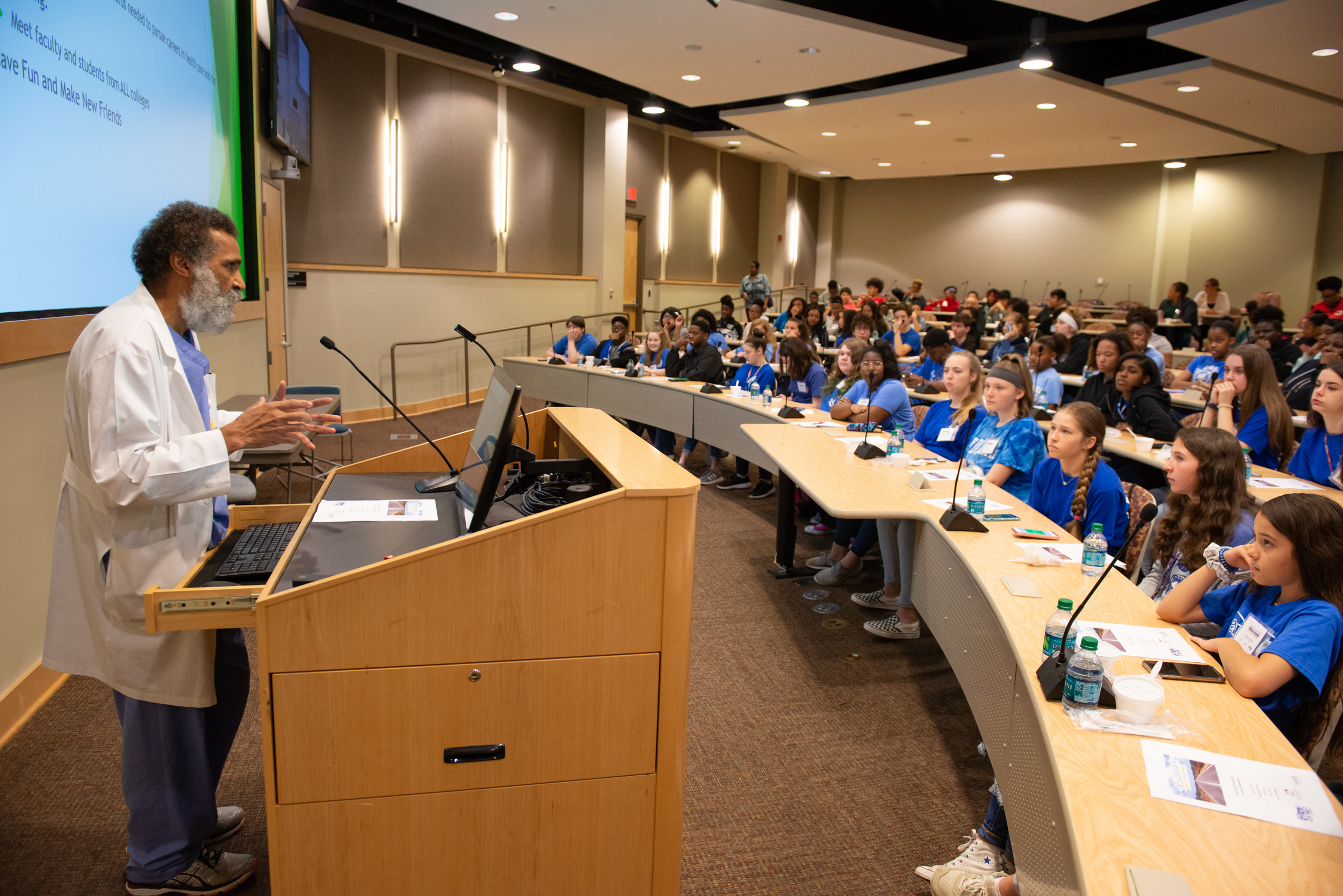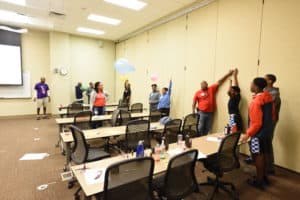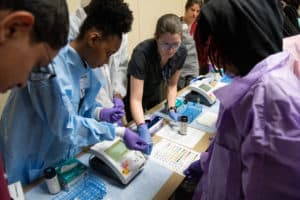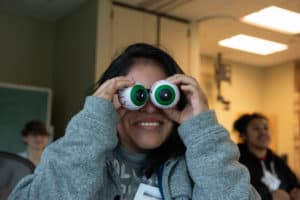Diversity Helps Keep Educational Pipeline Flowing
| The UAMS Center for Diversity Affairs has spent the spring working to fill the educational pipeline and inspire the next generation of health care workers: today’s junior high and high school students.
“I think we’ve really been successful because we’ve had maybe 200 to 250 encounters with students, and that doesn’t include what we’ve got planned for this summer,” said Odette Woods, senior director at the center.
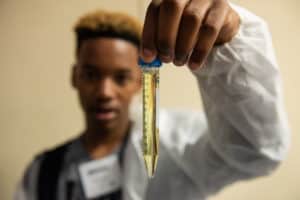
A student learns about urinalysis during a simulation, part of the “What’s in Your Bladder?” breakout session.
Helping high school students find pathways into a career in health care as they get ready to graduate and apply to UAMS is important. But it’s also vitally important to understand that students don’t often wait until high school to think about their career plans.
“Positive experiences and exposures have a huge correlation on what a child will do in the future. -Research says students make these decisions in the seventh, eighth and ninth grade,” said Nick Pettus, senior diversity specialist.
For that reason, UAMS has offered a series of engaging events throughout the spring: a Saturday workshop for 12 to 14 year olds called Full STEAM Ahead, a single-day conference for eighth graders organized in partnership with the Arkansas STEM Coalition and the Arkansas Department of Career Education called Roadmap to Success, and inviting Jefferson County high school students already planning on careers in health care to tour different parts of the UAMS campus.
“There’s a leak in our academic pipeline as it relates to seventh and eighth grade students,” said Woods. “So we’ve been very intentional this year in trying to bolster the activities and events we offer that particular group.”
At Full STEAM Ahead, held in April in partnership with Little Rock’s Urban League of Young Professionals, approximately 70 students turned out – on a Saturday and despite the rain – and had the chance to engage with hands-on activities in each of the STEAM areas: science, technology, engineering, art and mathematics.
Event coordinator Amber Booth-McCoy, senior diversity specialist, said activities included things like using iPads to create and play beats in the technology room and challenging older students to engineer a boat that wouldn’t sink as it was loaded down with pennies.
At the Roadmap to Success conference, organized by Woods in May, around 100 eighth grade students were invited to participate in breakout sessions at which they learned about the variety of careers available in health care from UAMS faculty and students. Topics included everything from life in the emergency department to working in a public health lab.
Later that month, high school sophomores, juniors and seniors at Jefferson Area Technical Career Center who are already on track to pursue careers in medical fields came to visit the College of Nursing and tour the pathology lab and the UAMS Simulation Center, where they were taught intubation skills and witnessed a code simulation. Pettus, who organized the visit, said the students benefitted from seeing practical applications of concepts they’d already learned about in class.
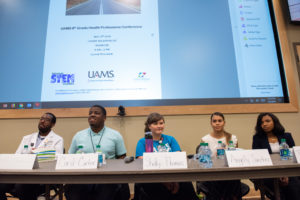
Members of a Q&A lunch panel during Roadmap to Success included: Richard Spencer-Cole, Cord Carter, Shelby Thomas, Angelly Sanchez and Trinity McIntosh.
These outreach events are important both to spark students’ interest in health care and keep them interested, especially in underserved student populations such as racial or ethnic minority students and those with fewer economic advantages.
“Representation matters. You can’t be what you can’t see,” said Booth-McCoy. “The words technology and engineering can sound threatening if you’ve never met an engineer. Engineering is such a vast concept and there are so many different kinds of engineers. The sciences necessary to pursue these careers can be very daunting if that’s not the experience of anyone in your family, which is the case for many of these underrepresented minorities. You don’t even know what the pathways to these careers are.”
Through events like those held this spring, the center helps students find those pathways and keep them on track.
“I’m from a rural area, and my parents did not go to college. When I was growing up, I did not think about going to college,” said Kimberlyn Blann-Anderson, the center’s director of outreach. “So it’s important we educate the parents, too. We can give them many tools for their students, and not just STEM and direct health care opportunities. There are other options out there, like policy making, for them to make a difference in the world.”
Those opportunities continue this summer with a second offering of the Roadmap to Success event, scheduled for June 20, and another STEAM-focused program targeting seventh and eighth grade students called NERDIES, which will teach health sciences and computer coding July 29-Aug. 2. These are in addition to the center’s other summer enrichment programs: the Junior STEM Academy and the Academy of Pre-Health Scholars, as well as others focused on preparing for medical school.
“Once students participate in any of these programs, now they’re in our database. Then there’s follow up. They’re going to get invited to future events,” said Woods. “What we’re trying to do is capture their attention early and keep them engaged.”
